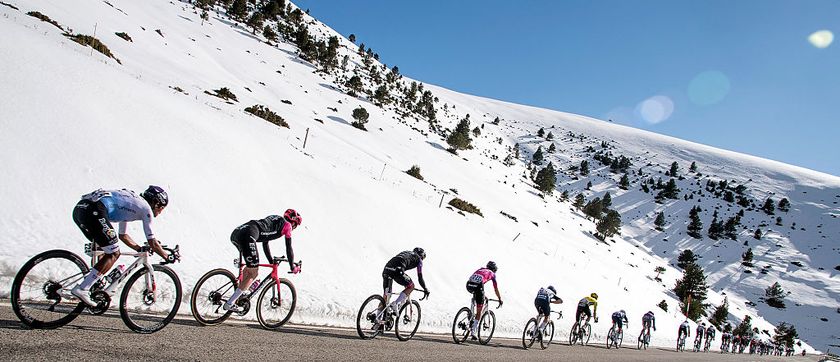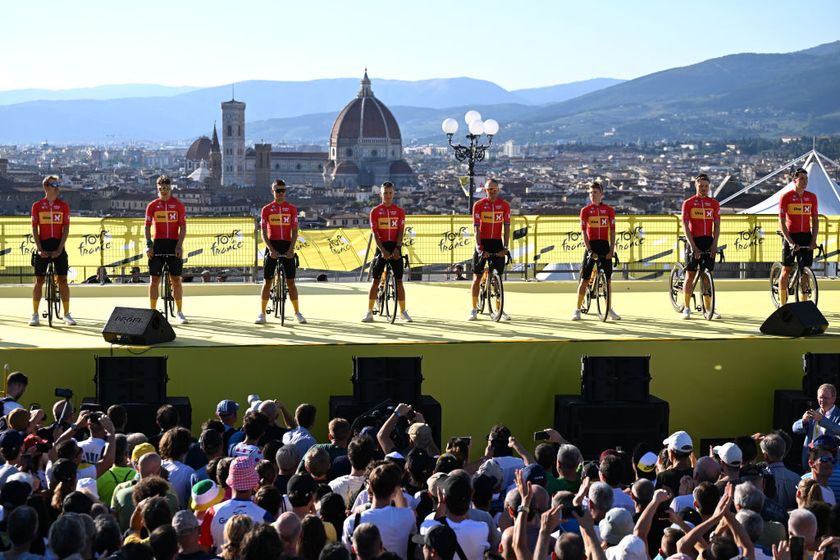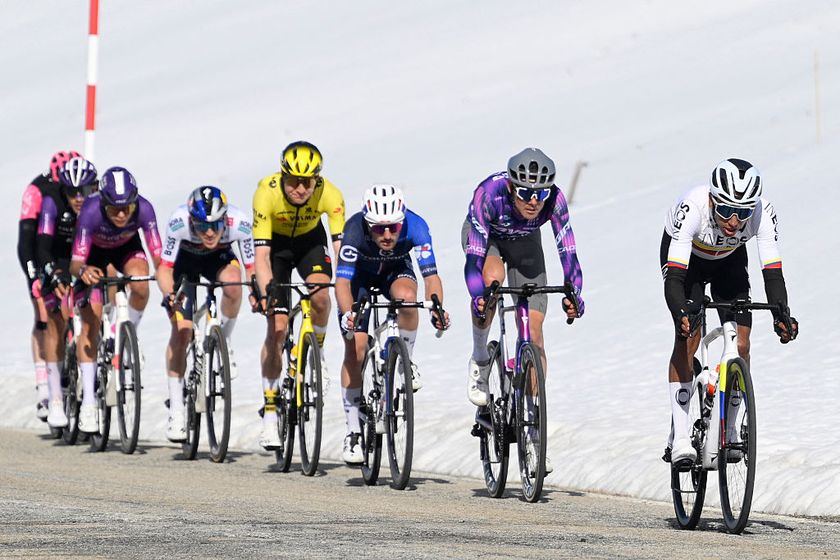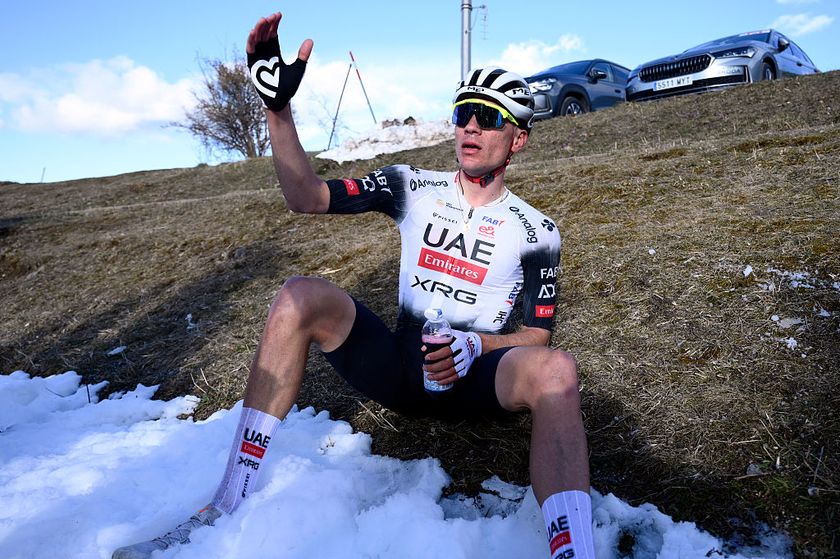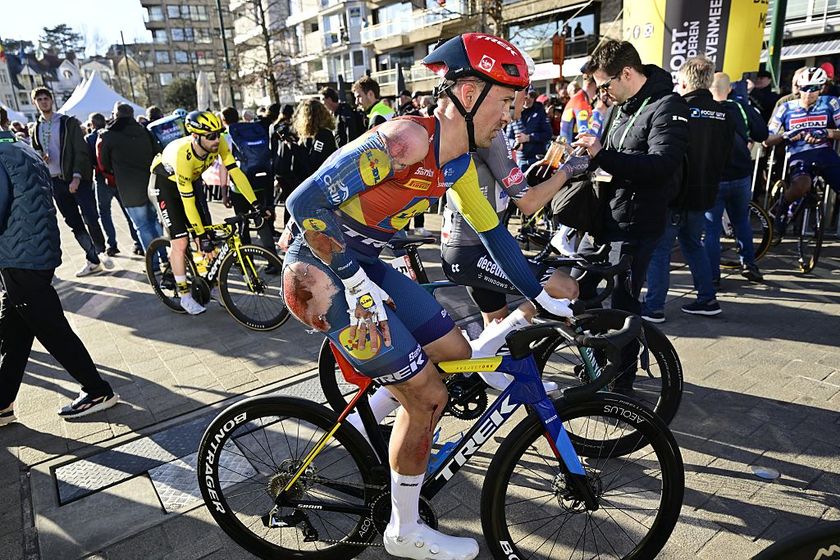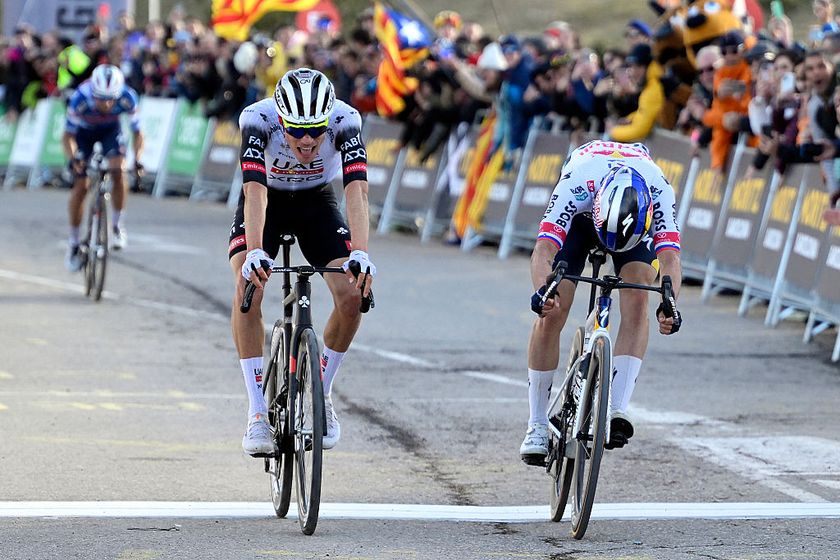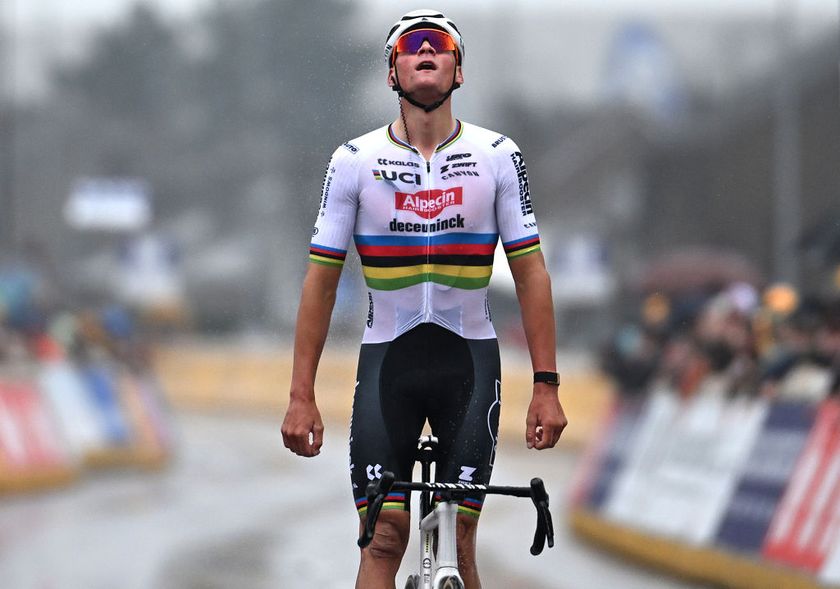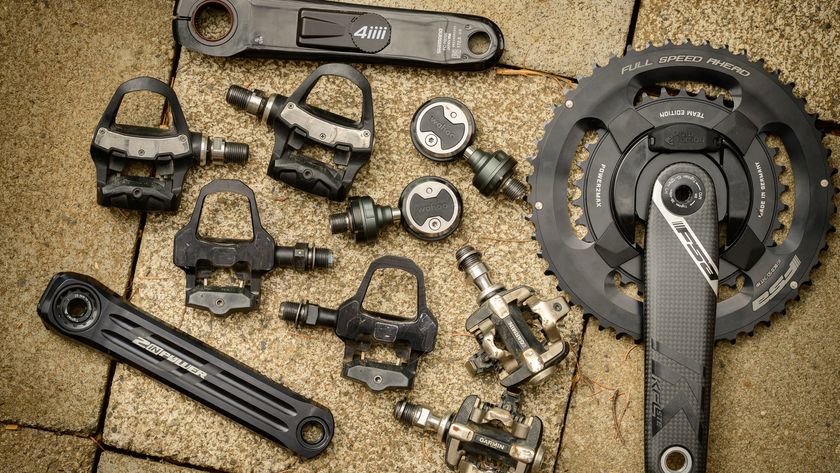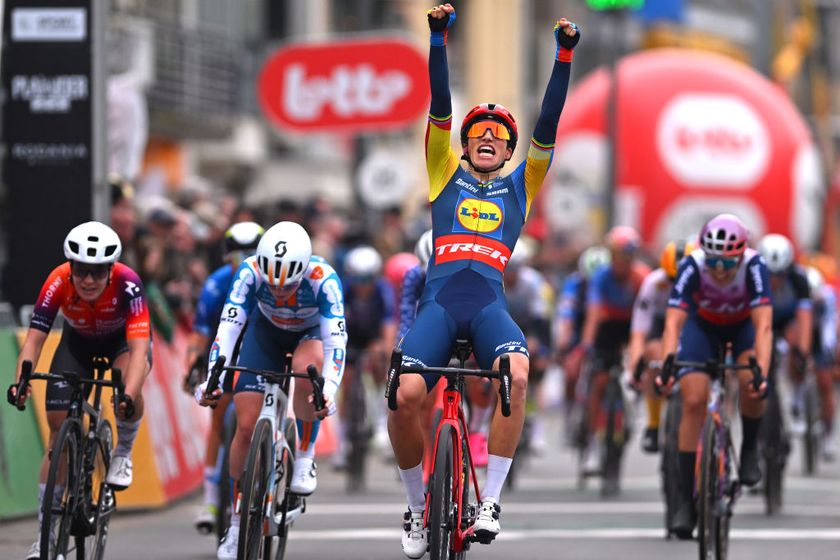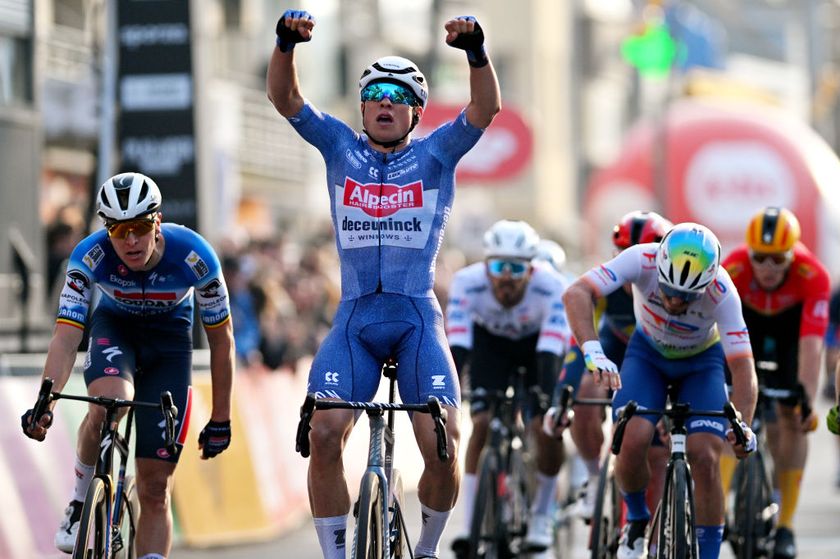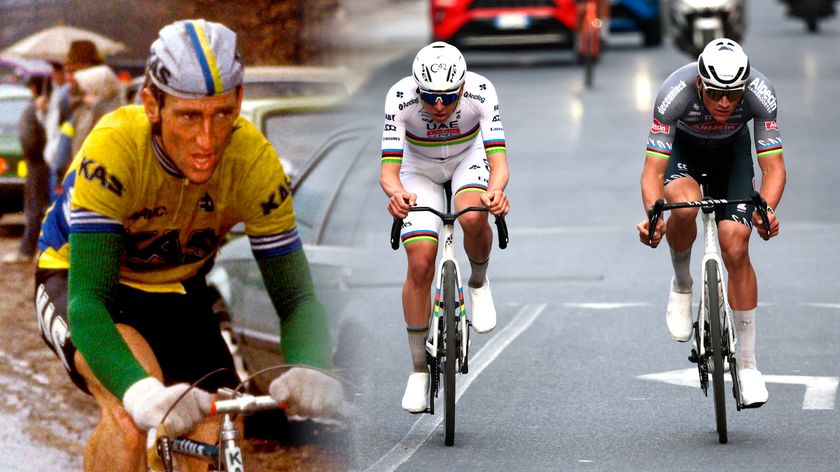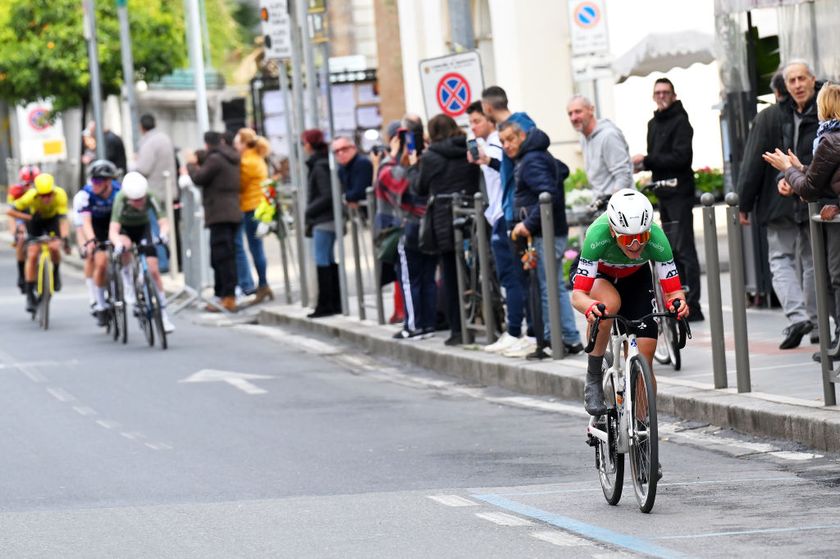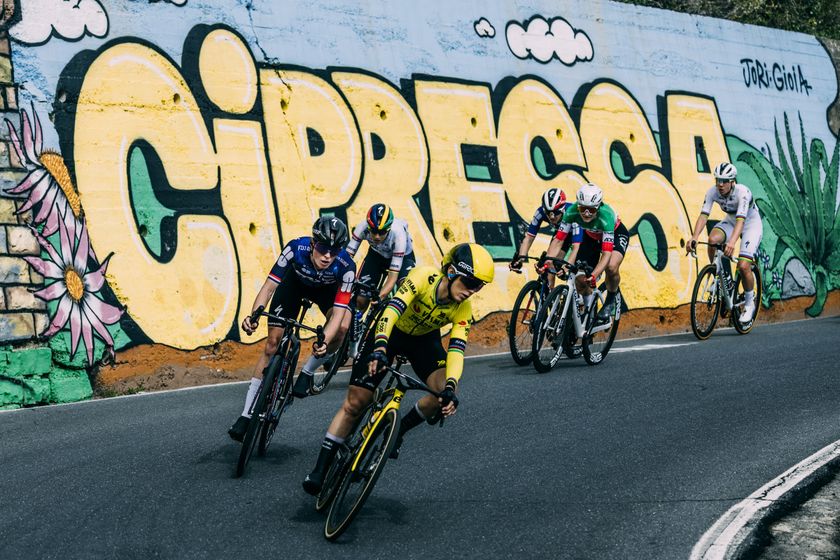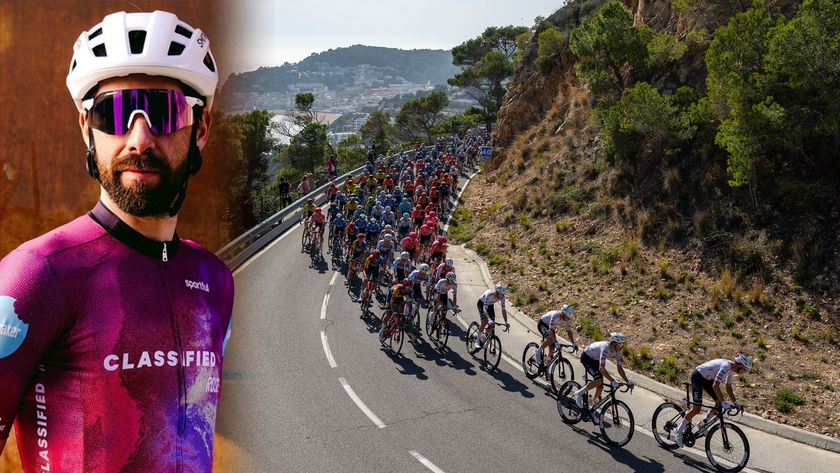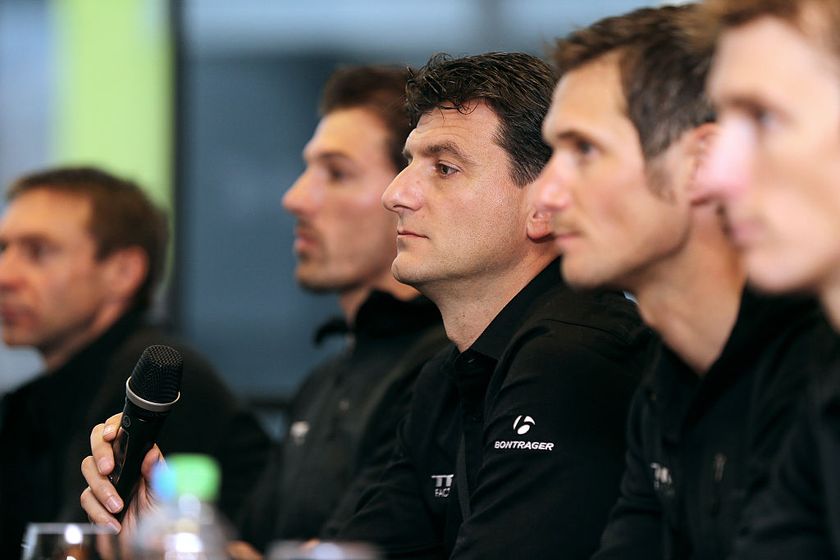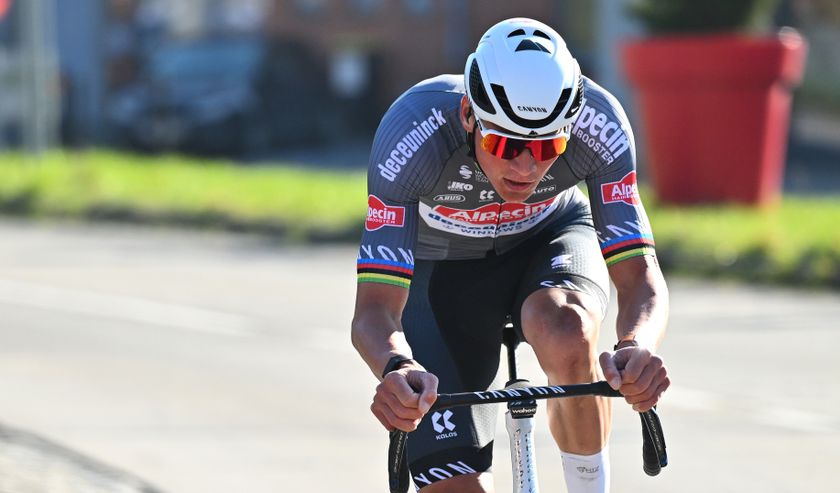Cummings keeping calm in the eye of the storm
Philippa York talks with British champion
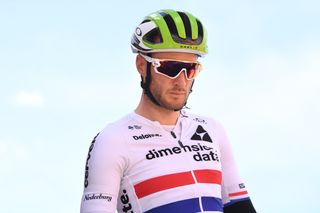
Entering his 13th season as a professional, Steve Cummings is in new territory. With Tirreno-Adriatico scrapped from his programme his preferred race schedule for finding form took a serious hit. Despite climbing up the pecking order in the team, which allows such choice, he’s found himself all too often replacing teammates who are injured, sick or unavailable due to visa issues.
After a difficult Vuelta Catalunya and a slightly better Pais Vasco, he’s at his first Tour de Romandie. Again, it’s a circumstance driven more by the bad luck that Team Dimension Data has endured lately than a desire to do something different.
Catching up with him at the start of the first proper road stage he cuts a fine figure in his British national champion’s jersey, and having won both the TT and the road title last year there’s no problem of having to remember which kit comes out for race day. It’s rare that someone wins both events, and quite rightly he’s proud to be in a distinctive jersey.
“I didn’t like the start of the season. First it was the programme and then we had injuries and I got a late call for San Remo and started but felt like I hadn’t raced. I was pretty loaded up with training before I got there and probably started tired because of the late call. To be fair to the team, the late call was due to the injuries.”
The necessity to keep filling in for absent teammates means his established methodology has been derailed, and, as he explains, so has his confidence. He’s not in bad shape - his prologue ride was similar to Dan Martin’s - but he feels he’s just missing that little bit of spark that makes the difference.
With the absence of core riders like Bernie Eisel, and the crashes affecting Mark Cavendish, the weight of team expectations now fall onto his shoulders. But ever the realist, he’s handling the stress by making sure he’s doing what he calls ‘the basics’ right.
Stressed out isn’t something associated with Cummings’ way of riding, or how he talks, but worries can set in and further affect performance, so after Romandie he’s scheduled to have a longer rest period and have a chance to assess where he is and what he needs to work on. Then it’s the Dauphine. Maybe.
Get The Leadout Newsletter
The latest race content, interviews, features, reviews and expert buying guides, direct to your inbox!
Philippa York is a long-standing Cyclingnews contributor, providing expert racing analysis. As one of the early British racers to take the plunge and relocate to France with the famed ACBB club in the 1980's, she was the inspiration for a generation of racing cyclists – and cycling fans – from the UK.
The Glaswegian gained a contract with Peugeot in 1980, making her Tour de France debut in 1983 and taking a solo win in Bagnères-de-Luchon in the Pyrenees, the mountain range which would prove a happy hunting ground throughout her Tour career.
The following year's race would prove to be one of her finest seasons, becoming the first rider from the UK to win the polka dot jersey at the Tour, whilst also becoming Britain's highest-ever placed GC finisher with 4th spot.
She finished runner-up at the Vuelta a España in 1985 and 1986, to Pedro Delgado and Álvaro Pino respectively, and at the Giro d'Italia in 1987. Stage race victories include the Volta a Catalunya (1985), Tour of Britain (1989) and Critérium du Dauphiné Libéré (1990). York retired from professional cycling as reigning British champion following the collapse of Le Groupement in 1995.
